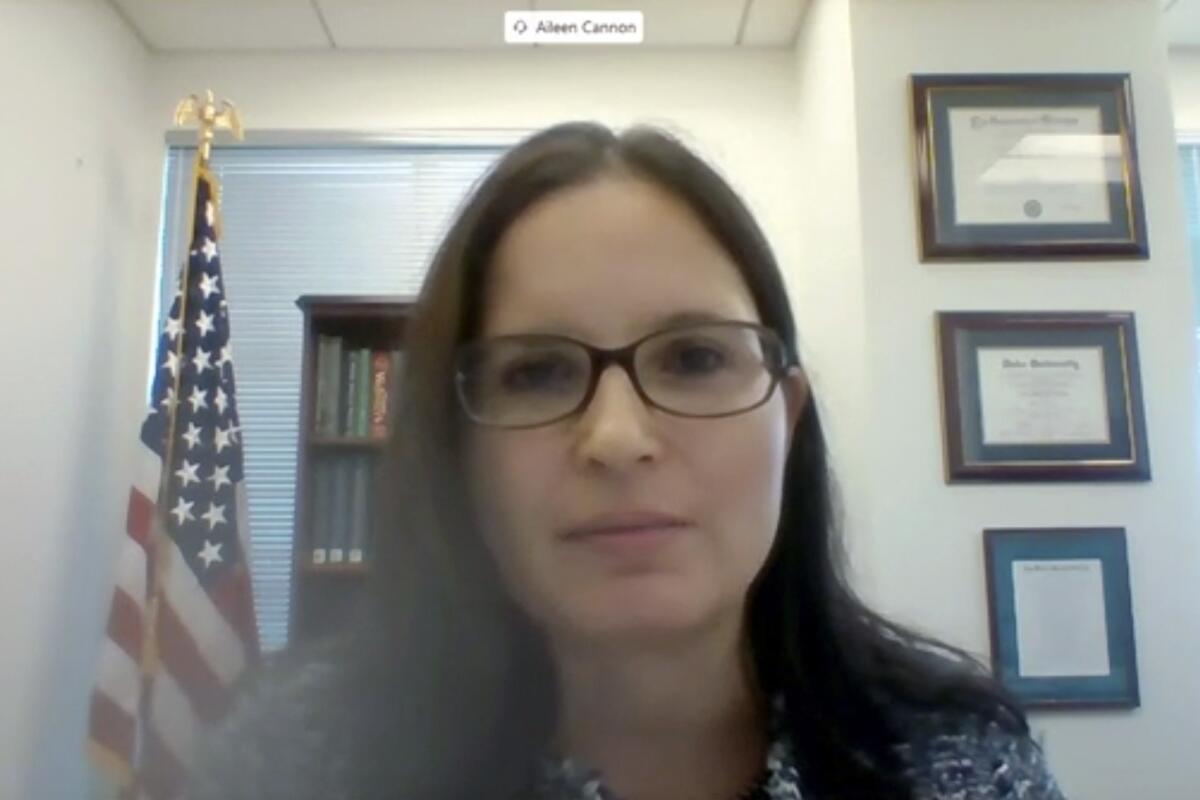Judge declines for now to push back Trump’s classified documents trial

WASHINGTON — A federal judge in Florida on Friday declined to delay Donald Trump’s classified documents trial, calling a request by the former president’s defense lawyers to postpone the date “premature.” But she pushed back other deadlines in the case and signaled that she would revisit the trial date later.
The ruling from U.S. District Judge Aileen Cannon means that the trial, for now at least, remains scheduled to begin May 20, despite efforts by the Trump team to postpone it until after next November’s presidential election.
Trump’s lawyers had argued that they needed more time to review the large trove of evidence with which they’d been presented and also cited scheduling challenges resulting from the other legal cases against Trump, including three other criminal prosecutions for which he is awaiting trial. Special counsel Jack Smith’s team had vigorously opposed that position in urging the judge to leave the trial date intact.
Cannon signaled during a hearing this month, and again in her written order Friday, that she was sympathetic to the defense arguments. She noted the “unusually high volume of classified and unclassified evidence” involved in the case, as well as the fact that Trump is scheduled in March to face both a federal trial in Washington and a trial on state charges in New York.
“Although the Special Counsel is correct that the trajectory of these matters potentially remains in flux, the schedules as they currently stand overlap substantially with the deadlines in this case, presenting additional challenges to ensuring Defendant Trump has adequate time to prepare for trial and to assist in his defense,” Cannon wrote.
She pushed back several deadlines for filing and responding to pretrial motions but kept the trial date in place, though she said she would consider the defense request again at a scheduling conference in March.
The case in Florida includes dozens of felony charges accusing the Republican former president of illegally retaining classified documents at his Palm Beach estate, Mar-a-Lago, and hiding them from government investigators. Trump has pleaded not guilty.
Trump is currently set for trial on March 4, 2024, in Washington on federal charges that he plotted to overturn the 2020 presidential election, which he lost to Democrat Joe Biden. He also faces charges in Georgia accusing him of trying to subvert that state’s vote, as well as another state case in New York accusing him of falsifying business records in connection with hush money payments to porn actor Stormy Daniels ahead of the 2016 election.
In addition, Trump has been sued in a business fraud case in New York, where a trial is taking place. Trump has denied wrongdoing in all of the cases, claiming without evidence that they are part of a politically motivated effort to prevent him from returning to the White House.
More to Read
Get the L.A. Times Politics newsletter
Deeply reported insights into legislation, politics and policy from Sacramento, Washington and beyond. In your inbox three times per week.
You may occasionally receive promotional content from the Los Angeles Times.










